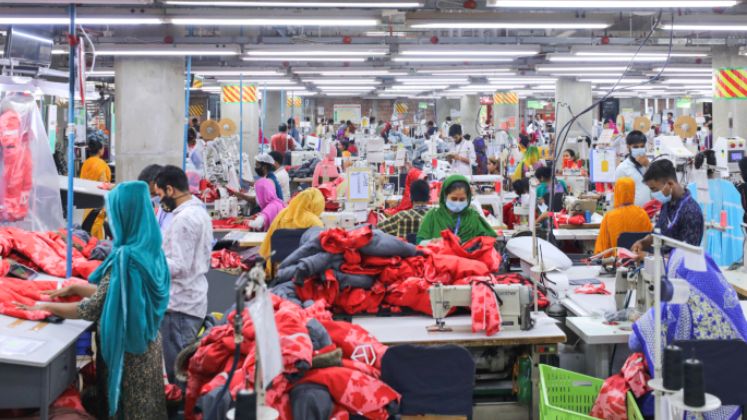
Textile millers in Bangladesh are requesting an extension of the credit period for importing raw materials, aiming to alleviate financial pressures and support their import-export activities. The Bangladesh Textile Mills Association (BTMA) formally communicated this request in a letter to Ahsan H Mansur, the governor of Bangladesh Bank, earlier this week.
The letter, signed by Brig Gen (retd) Zakir Hossain, highlighted that a central bank circular issued on 30th June 2024, had already extended the credit period for such imports until 31st December 2024. During a meeting between bank officials and BTMA representatives on 17th December, the challenges and issues faced by the textile sector were discussed, along with the proposal for a further extension of the credit period.
The BTMA also submitted a comprehensive report detailing the ongoing challenges within the export-oriented textile industry, emphasising the need for urgent action. The report cited several factors that have hindered mill operations, including geopolitical conflicts such as the Ukraine-Russia and Israel-Palestine wars, a global economic downturn, the significant depreciation of the Bangladeshi taka, a 250 per cent rise in gas prices, a 70 per cent increase in worker wages, recent political instability, and inadequate gas and electricity supply. These issues have collectively prevented mills from achieving full production capacity.
Furthermore, the textile industry has incurred substantial losses due to unfavorable exchange rates when importing raw materials. With the expiration of the extended credit period, the sector is in dire need of an extension to facilitate smoother import-export operations.
In addition to the credit extension, the BTMA has called on the central bank to address outstanding payments for “Accepted/Matured” bills related to yarn and fabric supplied, amounting to approximately US $ 44.31 million across 961 letters of credit from 66 member mills. Many of these mills are struggling with cash flow issues due to these unpaid bills.
The topic was also addressed in the 17th December meeting, where the Bangladesh Bank governor assured the BTMA delegation that efforts would be made to expedite the payment of these outstanding amounts.
The textile sector represents a significant investment of around US $ 22 billion, making it the largest single investment in the private sector. It accounts for approximately 84 per cent of the country’s export earnings, with local textile millers providing 70 per cent of the necessary raw materials and contributing about 30 per cent of foreign exchange earnings.






